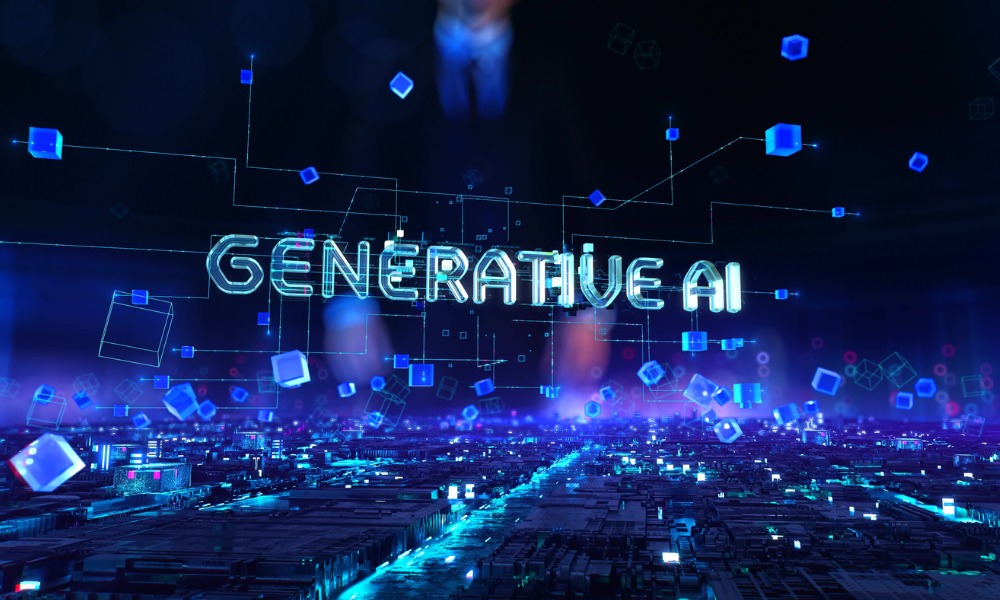
'Workforce implications vary across industries, and while regulation looms, uncertainty stands as today's primary challenge,' says MIT expert

Nearly all (96%) of employers believe that generative artificial intelligence will have an impact on their business, but there seems to be a slow adoption of the technology, according to a recent report.
Overall, just 4% of employers say that generative AI will not affect them. Yet, just 9% of companies have fully deployed a generative AI use case in their organization, reports MIT Technology Review Insights.
It seems employers are still unsure about a lot of things around AI, and that’s causing them to delay adoption. The primary challenges employers face in successfully implementing generative AI include:
"Business leaders are cautiously pursuing the transformative potential of generative AI, with nearly all respondents acknowledging its impact on their businesses," says Laurel Ruma, global editorial director, MIT Technology Review Insights. "However, only a small fraction have fully embraced generative AI use cases, highlighting a measured approach to implementation. Workforce implications vary across industries, and while regulation looms, uncertainty stands as today's primary challenge."
Currently, only 26% of employees say that their employer has a policy related to the use of generative AI, and 23% say that such a policy is under development, according to a previous report from The Conference Board. Over a third (34%) say their organization does not have an AI policy, and 17% don't know.
When it comes to the adoption of generative AI, small companies (those with annual revenue less than $500 million) are three times more likely than mid-sized firms ($500 million to $1 billion) to have already deployed a generative AI use case (13% versus 4%), reports MIT Technology Review Insights.
In fact, these small companies had deployment and experimentation rates similar to those of the very largest companies (those with revenue greater than $10 billion), based on the survey of 1,000 business leaders in July and August 2023.
“Affordable generative AI tools could boost smaller businesses in the same way as cloud computing, which granted companies access to tools and computational resources that would once have required huge financial investments in hardware and technical expertise,” says MIT Technology Review Insights.
Also, while 75% of executives plan to work with partners to bring generative AI to their organization at scale, they are somewhat more likely to plan to team up with small AI-focused companies (43%) than large tech firms (32%).
While previous reports have caused fear of automation on many workers before, only one quarter of business leaders expect generative AI’s primary effect to be a reduction in their workforce.
The figure was higher in industrial sectors like energy and utilities (43%), manufacturing (34%), and transport and logistics (31%). It was lowest in IT and telecommunications (7%).
“AI is democratizing technical skills across the workforce in ways that could lead to new job opportunities and increased employee satisfaction. But experts caution that, if deployed poorly and without meaningful consultation, generative AI could degrade the qualitative experience of human work,” says MIT Technology Review Insights.
Here’s how AI will affect the HR industry, according to HR futurist Jim Carroll.
However, employers should put more focus on equipping their workers with the necessary skills to successfully use generative AI at work, says Sander van ‘t Noordende, CEO at Randstad.
“AI is increasingly an enabler and enhancer of skills, holding a profound impact on productivity and overall performance in the workplace. But the imbalance between skills demanded by businesses and desired by employees, on the one hand, and the training opportunities provided, on the other, has to be addressed,” he says.
“AI is here to stay and the benefits of it are very clear - our data shows that employees stand ready to embrace it for their own gain too. Successful organizations will be those that leverage this readiness and harness the opportunities of AI in their workforce.”